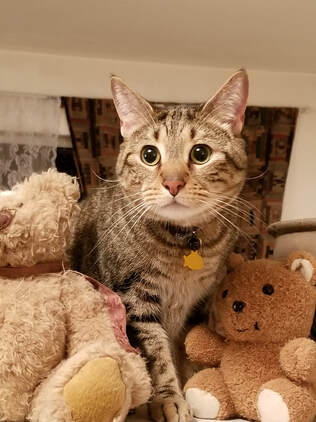Check for medical causes
Many times, a change in a cat’s nighttime noise results from feeling unwell. It’s not unusual for a cat to have increased or decrease activity when in pain. If your kitty has recently changed their meowing behavior, then you should take them to a veterinarian to rule out any potential health issues. Meowing and nibbling are the only ways cats know how to communicate with you—so hear them out.
Feed your cat before bedtime
Cats aren’t afraid to let you know when they’re hungry. They may even do it at the most inconvenient times, like when we’re trying to sleep! So, the best time to feed your cat is right before bed. If they still wake you up late into the night, you may want to try an automatic feeding system. This will let the cat eat multiple times throughout the night and also lets it associate the feeding system with mealtime, rather than you while you’re sleeping!
Often times cats will wake you up to play with you. It seems entirely backward to us because we do all our activities during the day, but cats are very different. They will try and wake you up several times each night to get in some play time. So, it’s very important to plan several playtime sessions throughout the day. When you get up, at lunch time, and at night before bedtime. A tired kitten is a quiet kitten!
Consider using alternative methods
Cats are very much like humans in that they can also have a hard time adapting to new routines. If you have a cat that’s difficult to train or is affected by behavioral problems, there are a few alternative methods you can try. There are several products that can be placed in your cats sleeping area that may help them settle down at night, such as:
- A diffuser that sprays a pheromone which calms your cat. It plugs into a wall outlet and intermittently sprays an anxiolytic mist
- Calming scents like lavender, chamomile, and lemon
- You may also try night chews for your cat, which may contain hemp, melatonin, and thiamine
This article was written by our friend Victoria Ward


 RSS Feed
RSS Feed

